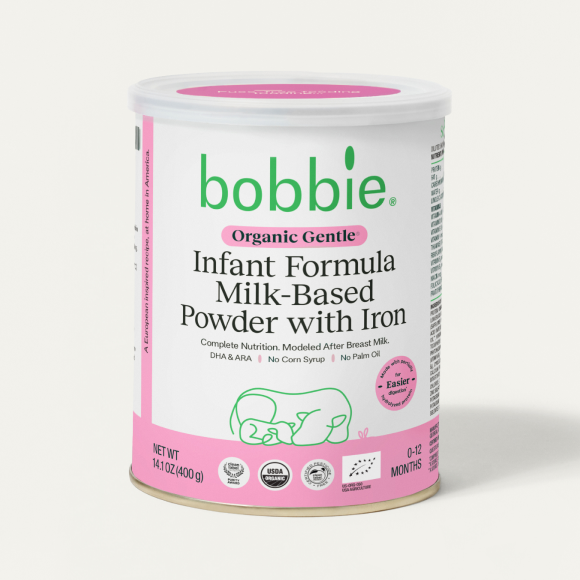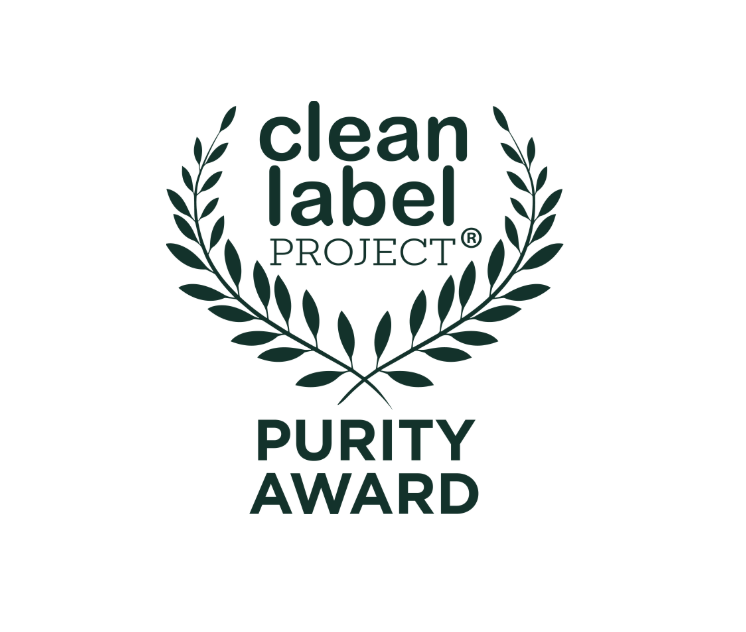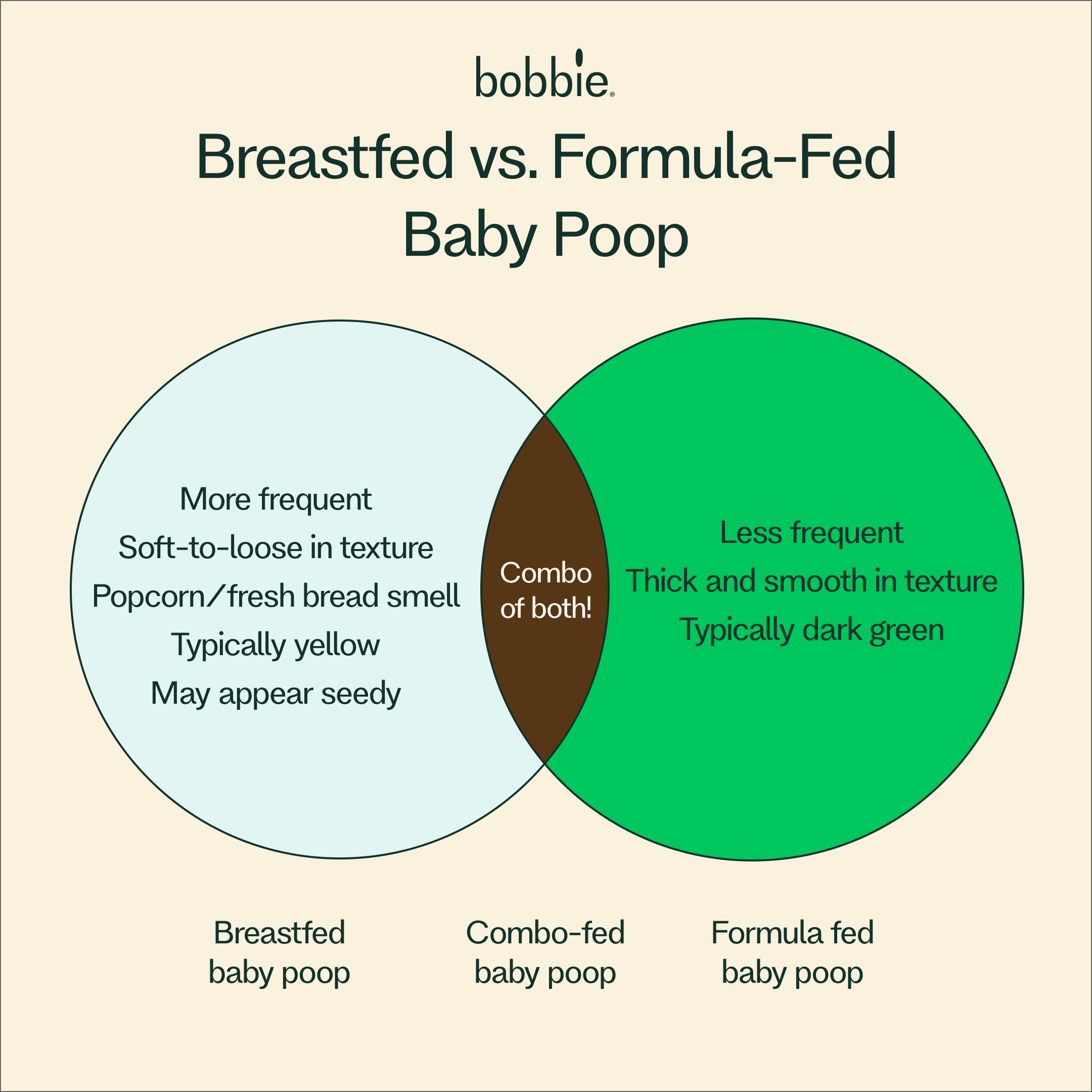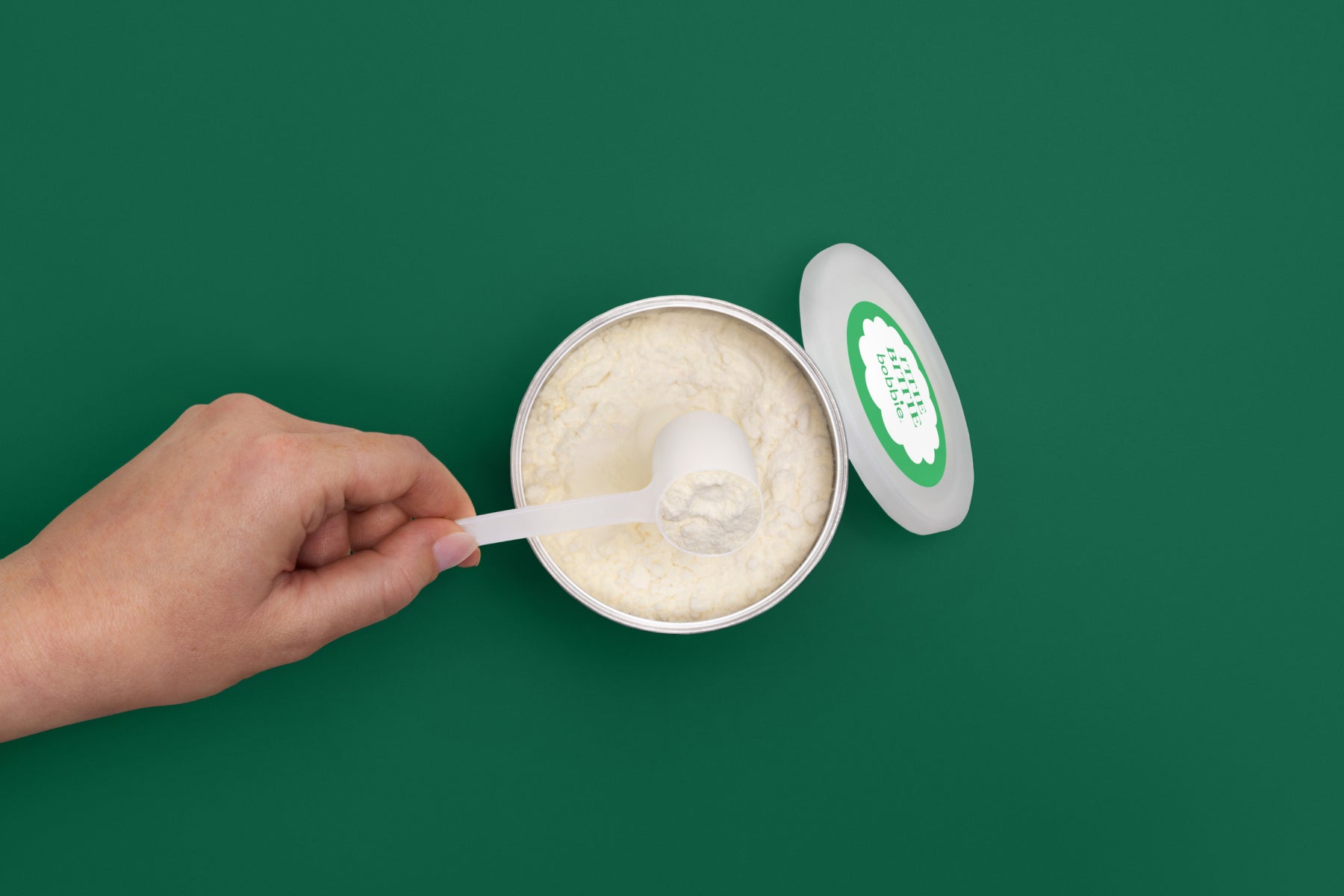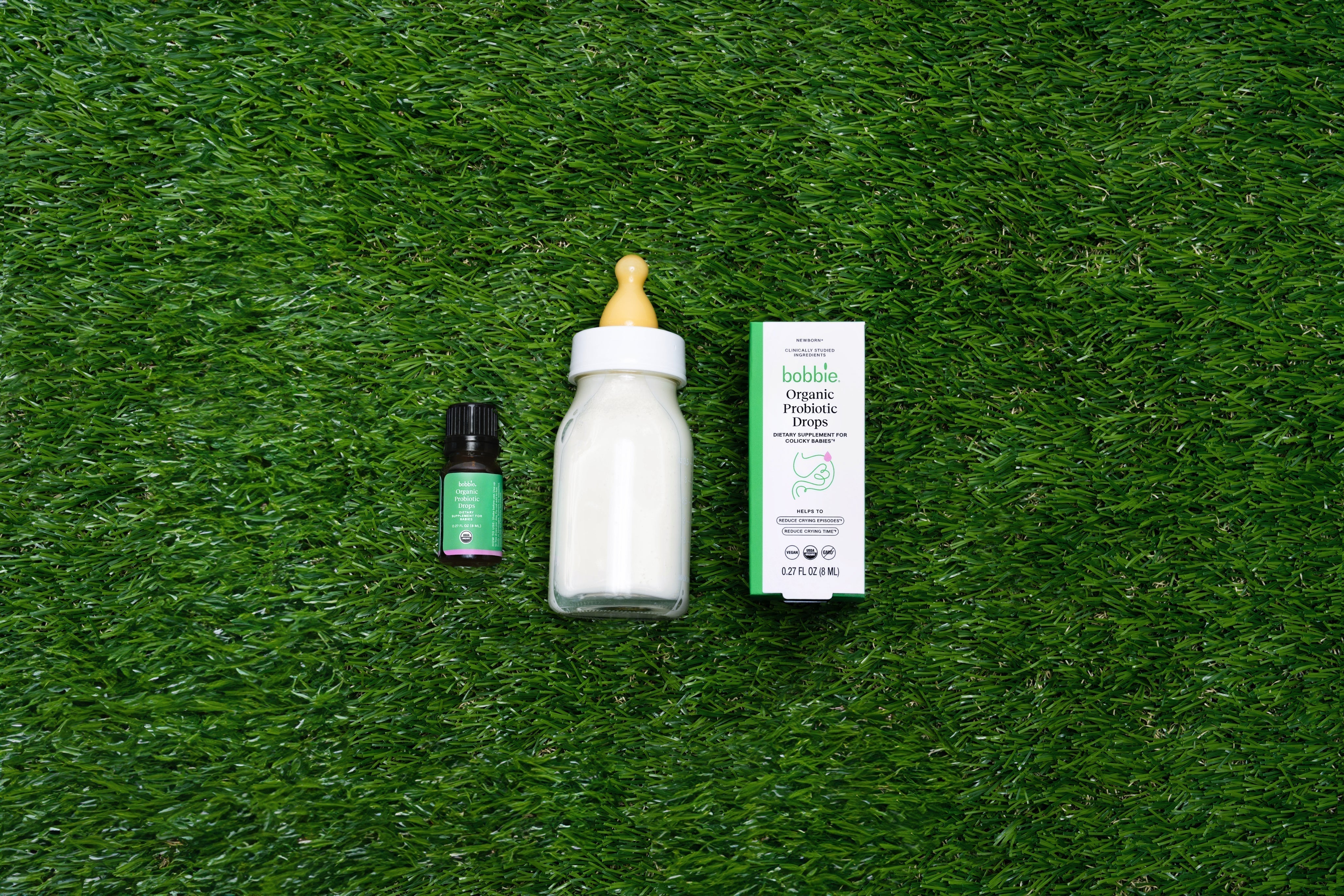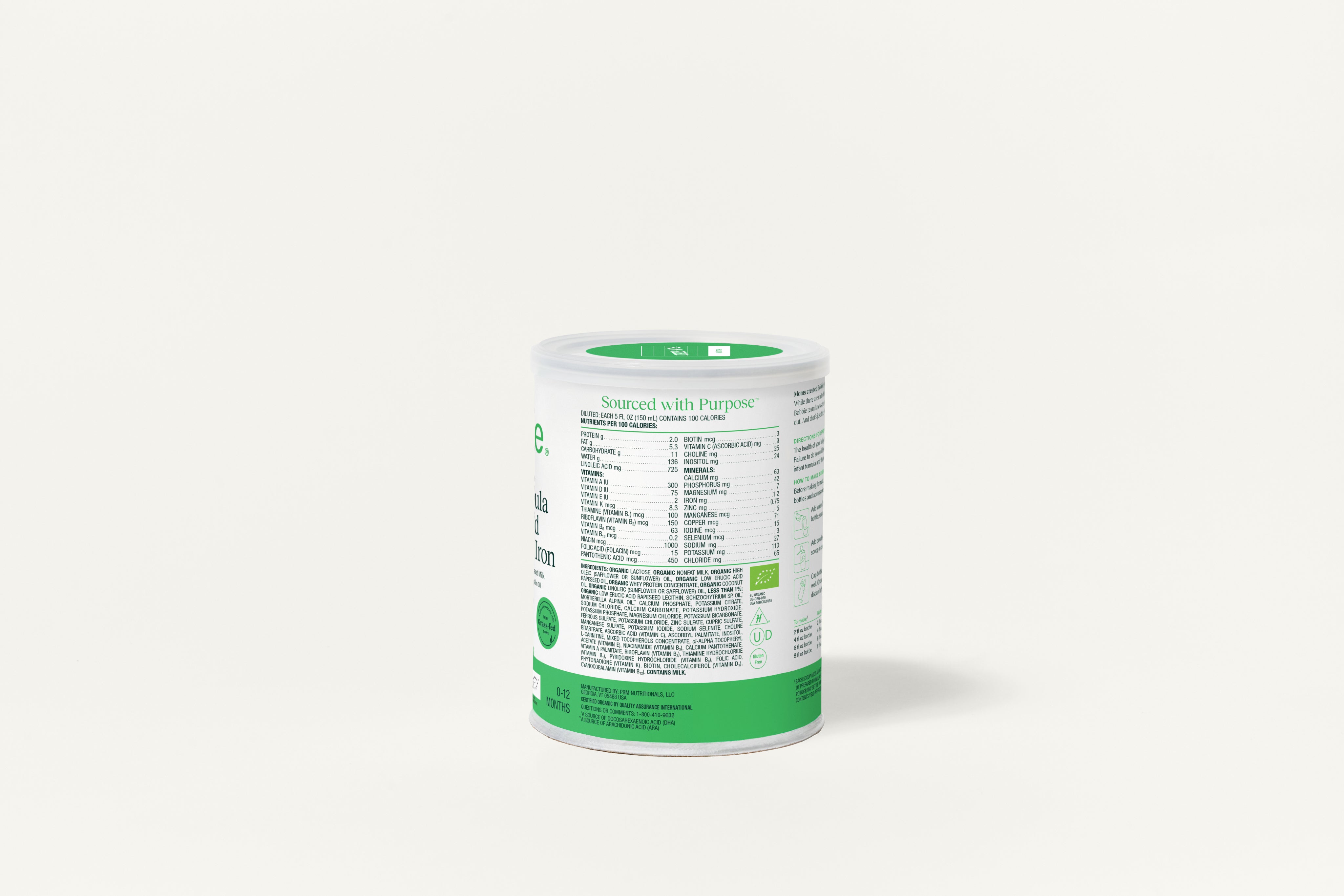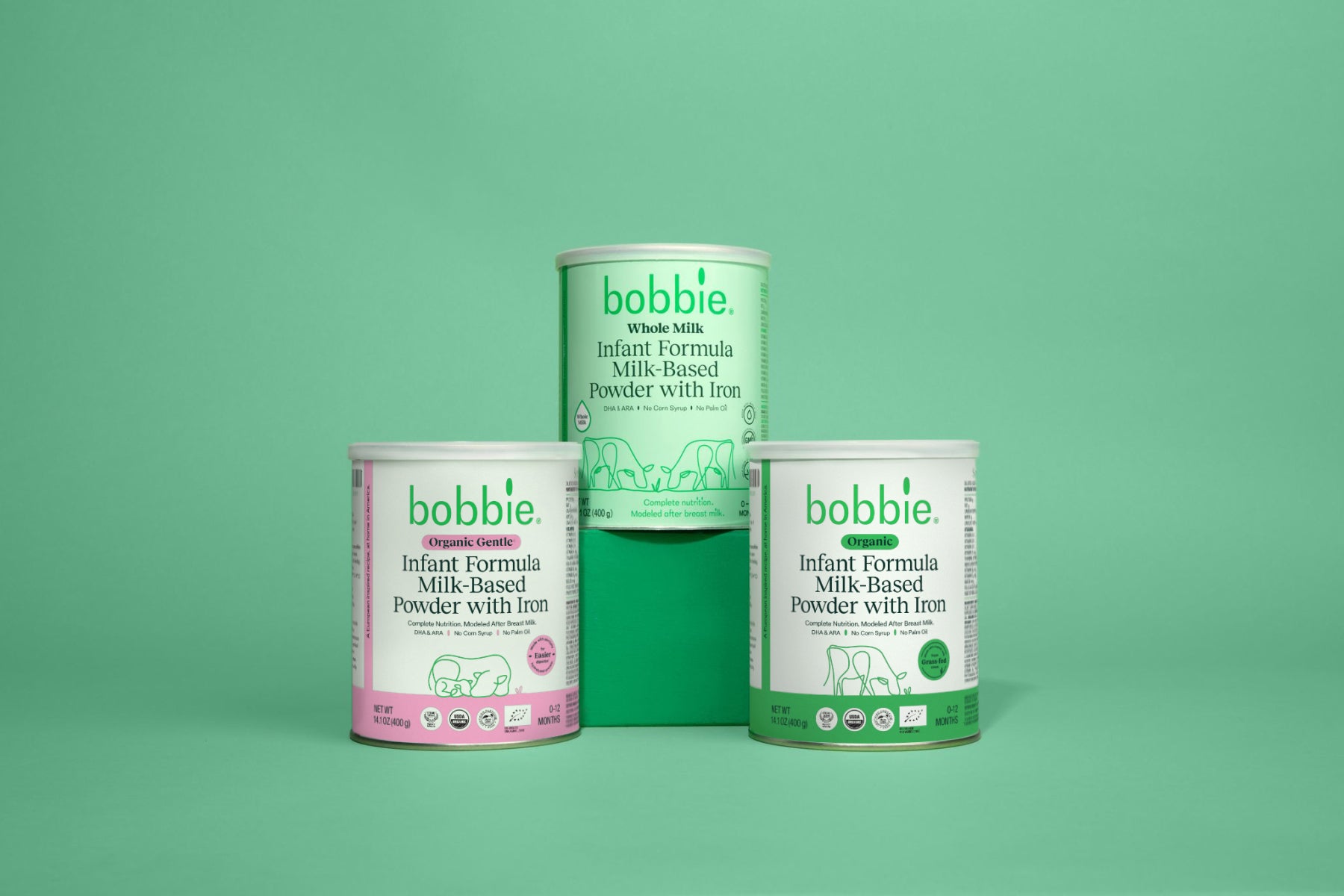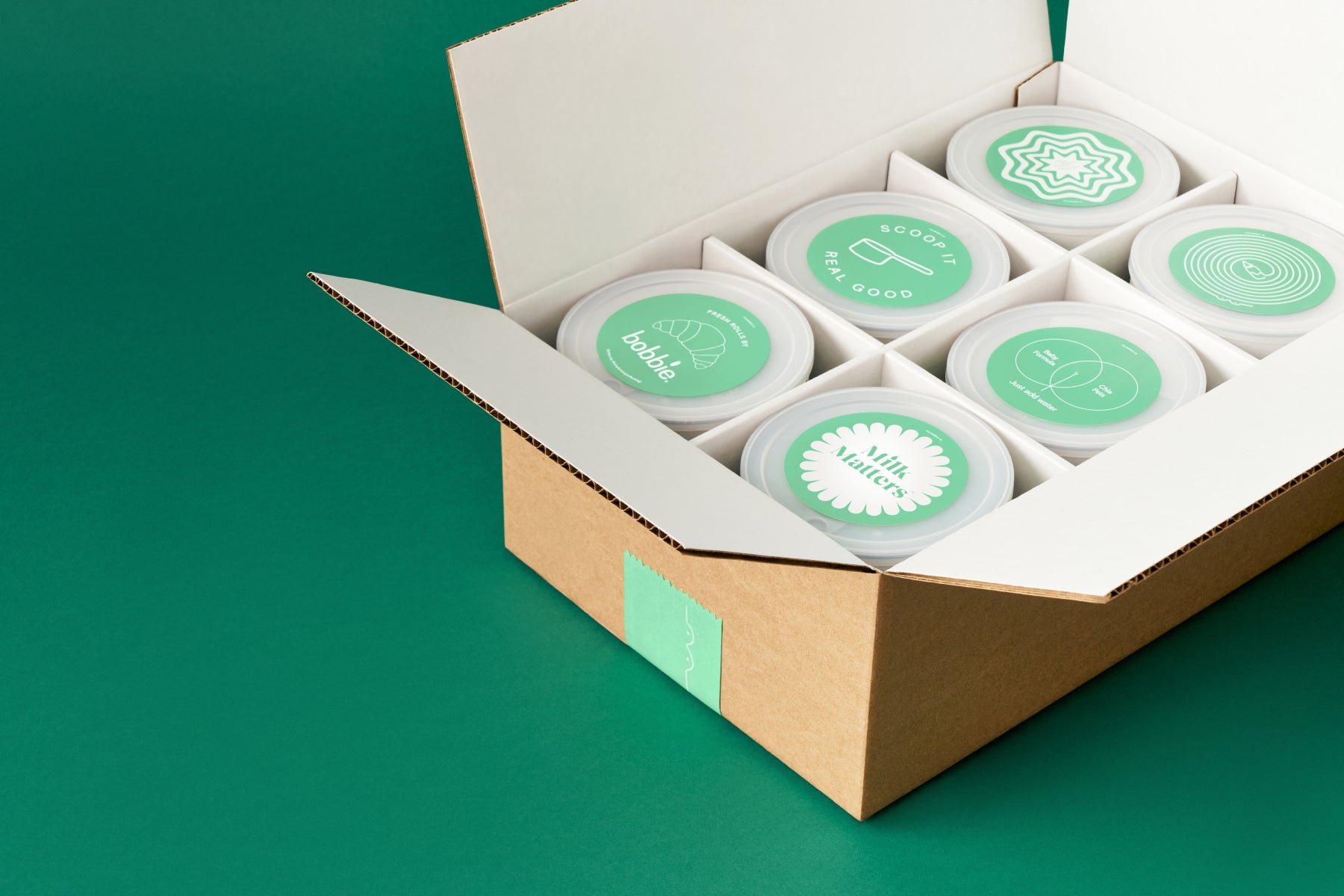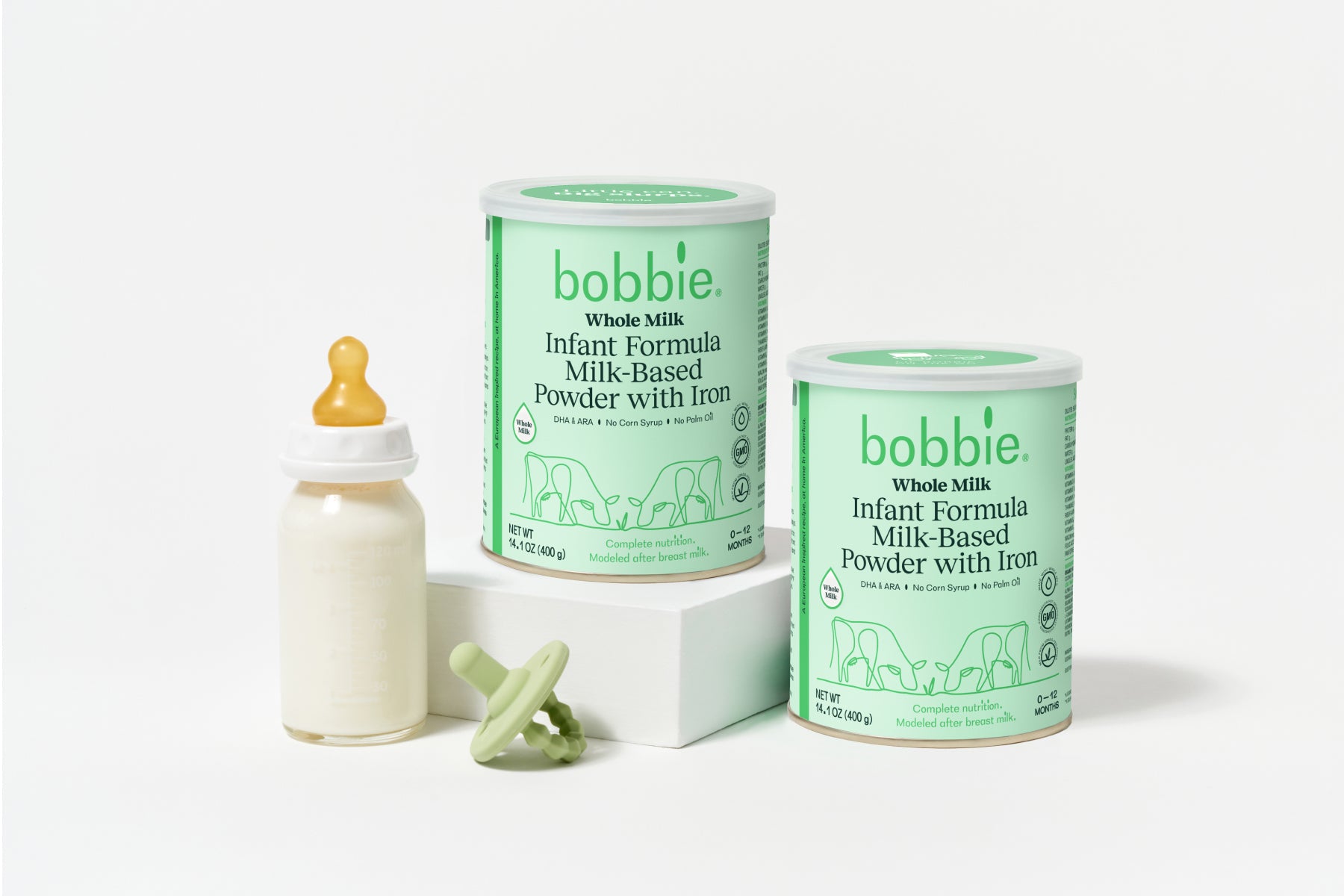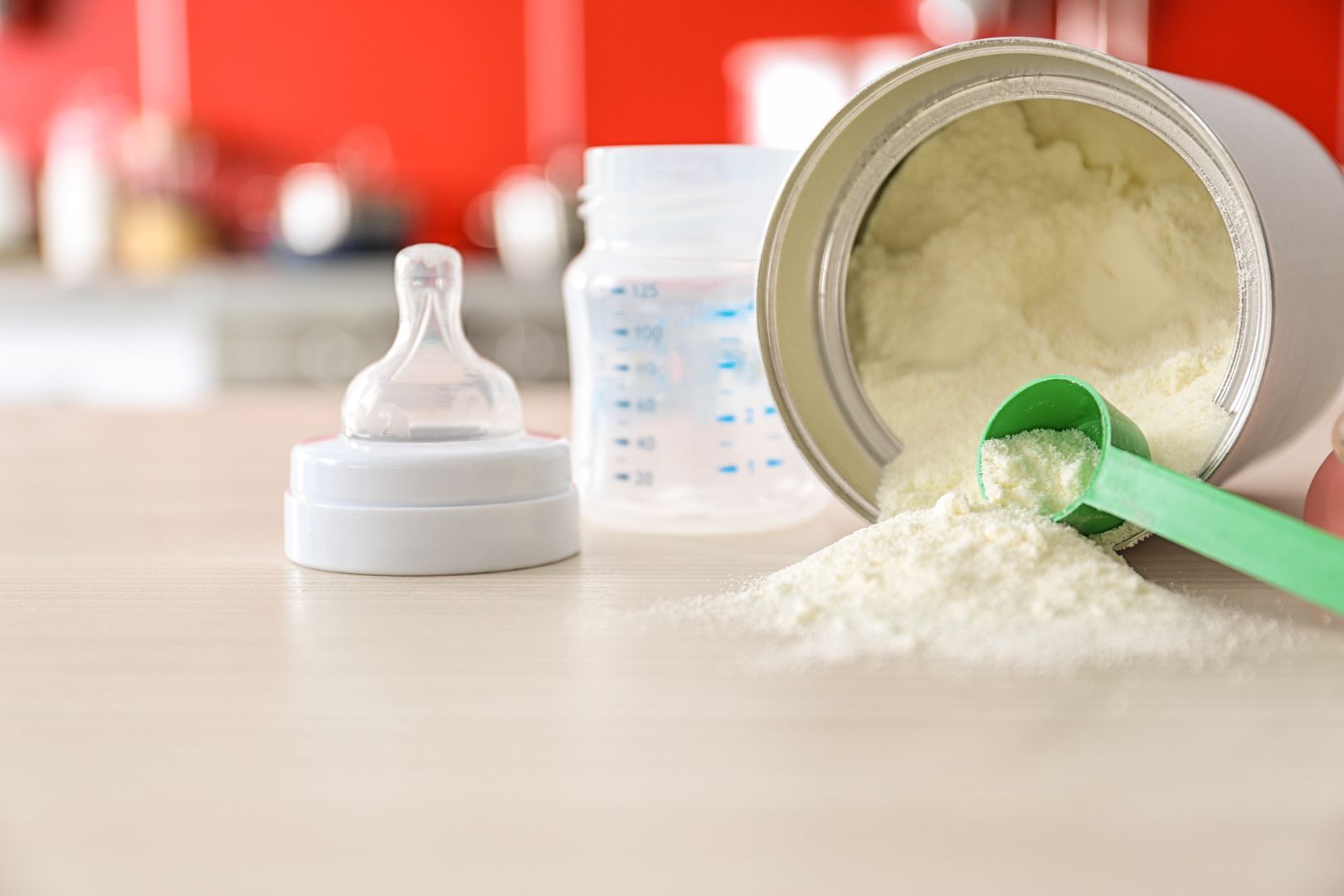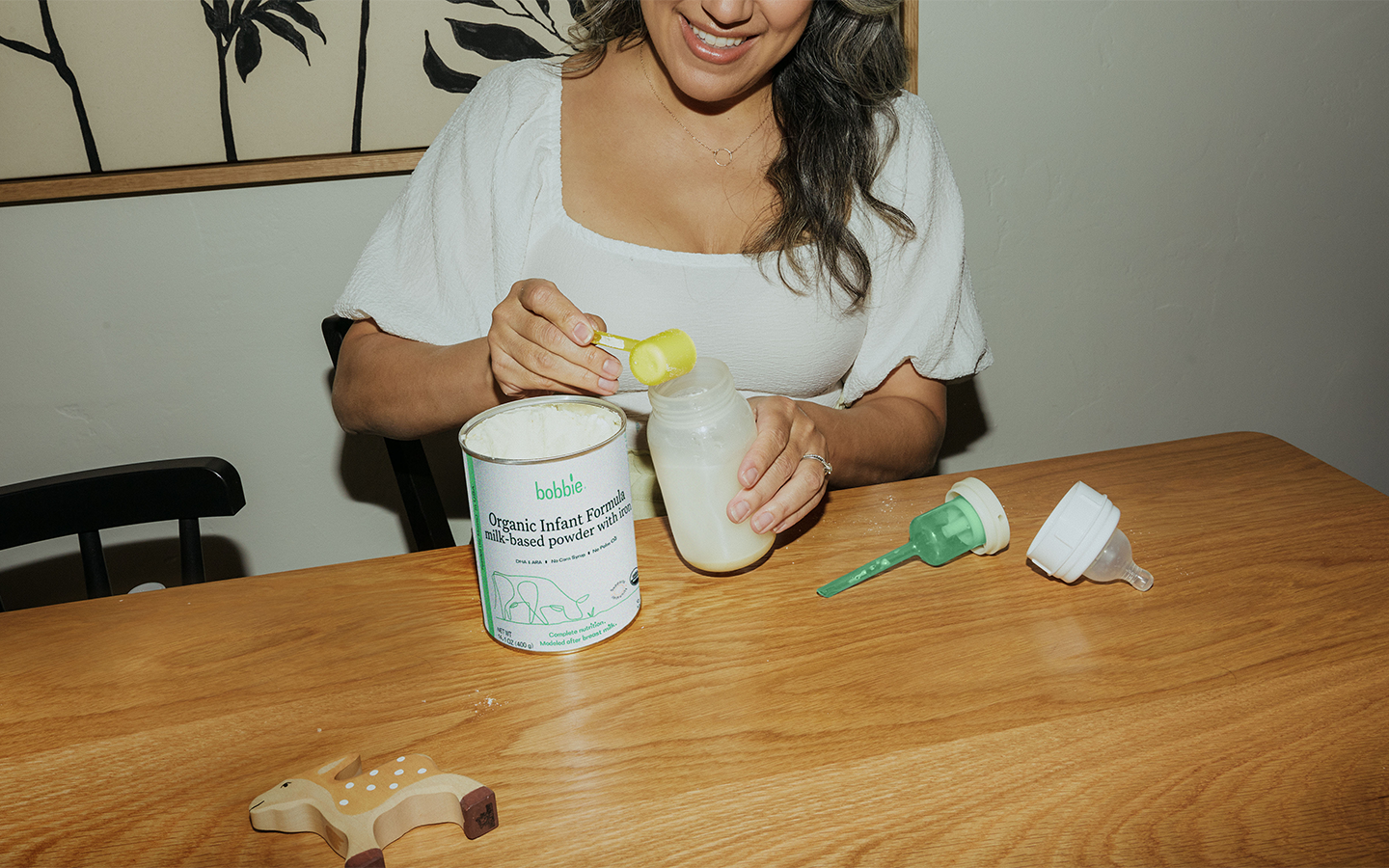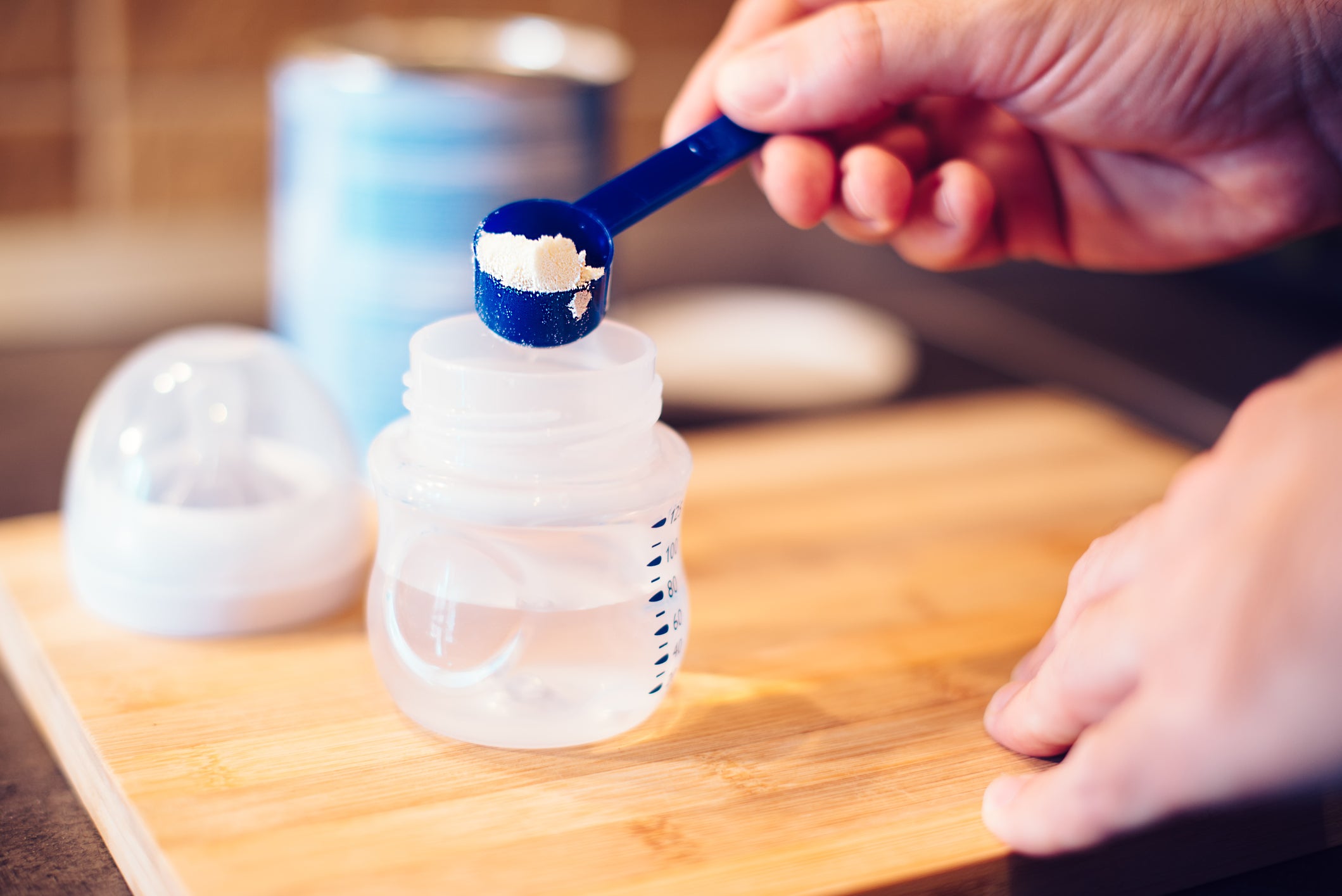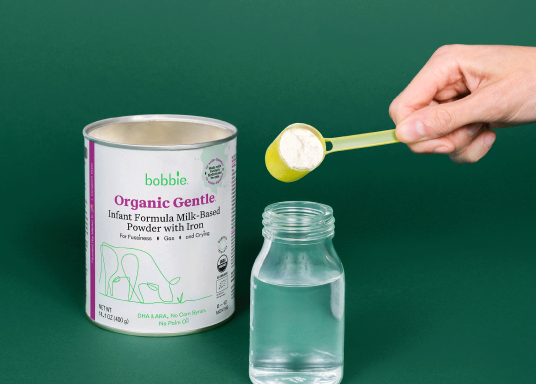Published August 10, 2023

Lactose vs. Corn Syrup in Baby Formula
Looking at the ingredients list on a container of baby formula can be overwhelming. Whey protein hydrolysate? Low erucic acid rapeseed oil? Soy lecithin? It can be hard to know what these ingredients are, much less the purpose that they serve!
Two ingredients that might be a bit more familiar (and that often appear near the top of the ingredient list) are lactose and/or corn syrup in baby formula. Carbohydrates make up roughly 40 percent of the calories that infants receive from baby formula or breastmilk, and both lactose and corn syrup can be used as a source for these important carbs. Let’s dig into the need to know info about lactose and corn syrup in formula.
What’s the Difference Between Lactose and Corn Syrup?
When it comes to choosing baby formula, one of the critical considerations is the carbohydrate source used in the product. The FDA requires that all infant formulas include carbohydrates to mirror the volume of carbs in breastmilk. While many carb sources can be used, including sucrose, maltodextrin, or glucose syrup, two of the most common carbohydrate sources found in baby formulas are lactose and corn syrup (or corn syrup solids). Understanding the differences between these two options is essential for parents to make an informed decision about their child's nutrition.
What is Lactose?
Lactose is a naturally occurring sugar found in all mammal milk and it is the primary carbohydrate source in breast milk. It consists of two sugar molecules, glucose and galactose, which are linked together. Lactose plays a crucial role in providing energy to growing infants. Did you know that the majority of infants can digest lactose without any issues? Given that lactose is the predominant carbohydrate source in human milk, full-term infants are biologically-designed to digest it as a result of lactase enzymes that they begin to produce in their gut while still in utero.
Bobbie Organic Infant Formula is a USDA Organic, EU-style infant formula that meets all FDA requirements. It is a complete nutrition milk-based powder modeled after breast milk and is easy on tummies. It is non-GMO and doesn't have corn syrup, palm oil, or maltodextrin. Shop Bobbie today!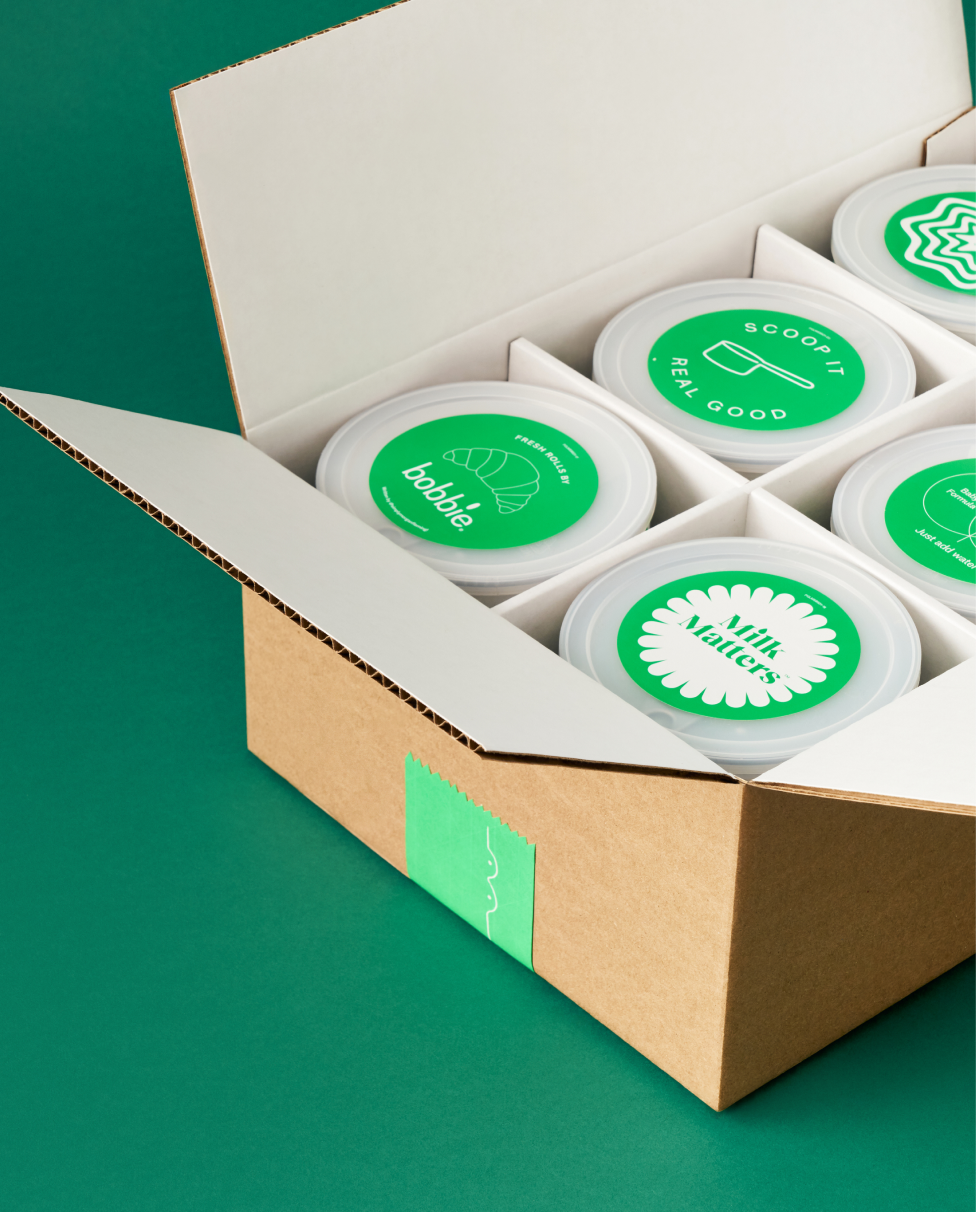
Shop Bobbie Organic Infant Formula

What is Corn Syrup?
Corn syrup is derived from corn starch, and consists of one sugar molecule - glucose. It is often used as a sweetener in various food products due to its ability to enhance flavor and texture. Corn syrup solids are made by dehydrating corn syrup to create a powdered form, which makes it easier to incorporate into formula mixtures. In the context of baby formula, corn syrup or corn syrup solids might be used as a carbohydrate source in place of or in addition to lactose to meet the total carbohydrate requirement in the FDA Infant Formula Act. Often, corn syrup is used in formula to provide an option for infants who are believed to be sensitive to lactose.
Is Corn Syrup in Formula Bad for Babies?
The inclusion of corn syrup in baby formula has been a topic of debate among parents, healthcare professionals, and formula manufacturers. While an allowable, “generally regarded as safe” (GRAS) ingredient according to the FDA, some parents have concerns about the impact of corn syrup on infants' health, particularly as part of a sole-source nutrition product like infant formula.
One of the main concerns is related to the glycemic index of corn syrup. The glycemic index measures how quickly a carbohydrate-containing food raises blood sugar levels. Lactose has a glycemic index value of 46, while corn syrup has a GI value of 100. This means that corn syrup is metabolized at twice the rate of lactose! While we know that high-glycemic foods can cause rapid spikes and crashes in blood sugar, we currently lack robust data on how changes in blood sugar values impact infants.
Note! Corn syrup used in infant formulas is not the same as high-fructose corn syrup (HFCS). In the past, certain formula manufacturers used high-fructose corn syrup as a carbohydrate source in their products. Companies have moved away from this ingredient, instead using 100% glucose-containing corn syrup instead of glucose+fructose-containing HFCS.
While longitudinal research is still forthcoming, some studies have suggested that infants who received formula with corn syrup-based carbohydrates had a higher risk of obesity during infancy and toddlerhood. It is essential to note, however, that research in this area is ongoing, and individual factors such as diet, lifestyle, and genetics also play a significant role in a child's risk of obesity.
Want to learn more? Tune into this free Bobbie webinar where the famous Dr. Michael Goran, Professor of Pediatrics at The Children’s Hospital of Los Angeles, shares his latest scientific discoveries about infant formulas containing corn syrup solids.
Sign up to get the scoop on feeding, sleep, poop, and so much more. By singing up for email, you are to receive marketing emails from Bobbie and can manage your email preferences or unsubscribe at anytime

Your go-to resource for all things new baby.
Lactose vs. Corn Syrup in Baby Formula
When comparing lactose-based formulas with those that include corn syrup-based carbohydrates, there are several key factors to consider:
- Nutritional Similarity to Breast Milk: Lactose-based formulas are often considered to be more nutritionally similar to human milk, as lactose is the primary carbohydrate found in human milk.
- Lactose Intolerance: While extremely rare, some infants may have difficulty digesting lactose. In these rare cases, a lactose-reduced or lactose-free formula may be recommended, and a corn syrup-based formula could be an appropriate alternative. Parents should consult with their pediatrician to determine the best course of action in case of digestive upset as the cause is frequently cow milk protein, not lactose!
- Taste: Lactose-based formulas are often praised for their mild, sweet taste. Corn syrup-based formulas are more sweet, and some babies might have preferences for one over the other.
- Availability of Formula Options: In the United States, lactose-based formulas are widely available and considered the standard or routine option. However, corn syrup-based formulas are the default for “gentle” and “sensitive” formula types. Parents may need to explore various brands to find the most suitable formula for their child, and in some cases, a child’s needs may dictate the type of carbohydrate source used in their formula. For example, children with cow milk protein allergy (CMPA) should use a hypoallergenic formula, all of which (from U.S. manufacturers) currently contain a non-lactose carbohydrate source.
-
Special Supplemental Nutrition Program for Women, Infants, and Children (WIC): Families who rely on the WIC program for formula assistance are restricted in the brands and types of formula they can buy based on the contracted formula manufacturer for their state. While both lactose-based and corn syrup-based options are typically available, check with your state WIC office for a list of covered formula products.
Is Lactose Better than Corn Syrup in Baby Formula?
The choice between lactose and corn syrup-based baby formula involves considering factors such as nutritional composition, taste preferences, and developing science. Lactose-based formulas are generally more closely aligned with the composition of breast milk and well-tolerated carbohydrate source for most infants. However, for babies with specific medical needs, a lactose-reduced or lactose-free infant formula may be an appropriate option.
As with any dietary decision for infants, it is crucial to consult with a pediatrician or healthcare professional to determine the most suitable formula option for your child's individual needs and to ensure they receive the best possible start in life!
Bobbie Organic Infant Formula is a USDA Organic, EU-style infant formula that meets all FDA requirements. It is a complete nutrition milk-based powder modeled after breast milk and is easy on tummies. It is non-GMO and doesn't have corn syrup, palm oil, or maltodextrin. Shop Bobbie today!
Shop Bobbie Organic Infant Formula

The content on this site is for informational purposes only and not intended to be a substitute for professional medical advice, diagnosis or treatment. Discuss any health or feeding concerns with your infant’s pediatrician. Never disregard professional medical advice or delay it based on the content on this page.








